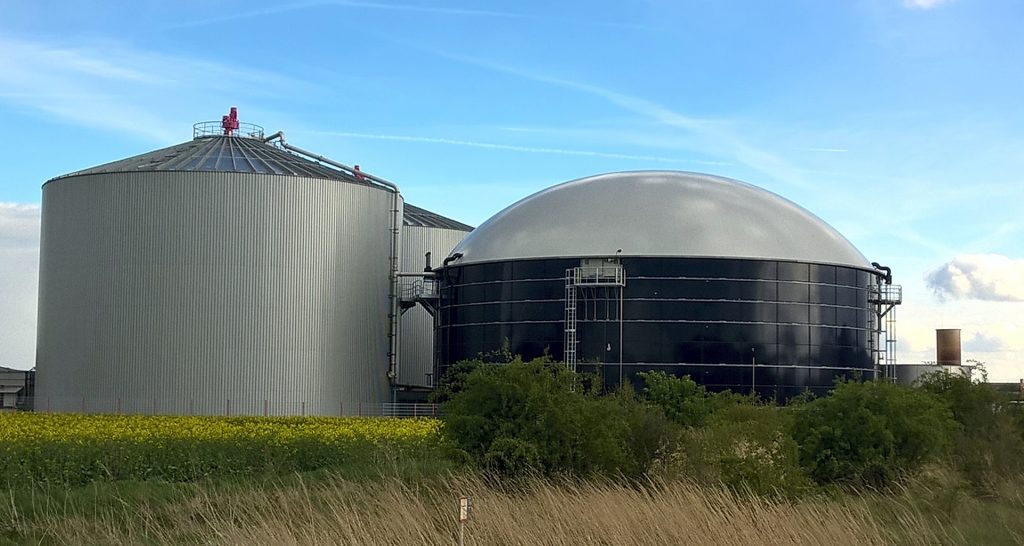Ethanol Factory
PROPOSED AFRODEZT ETHANOL FACTORY
As part of business expansion, Afrodezt has concluded plans to build 100,000 LPD ethanol manufacturing factory at Orlu road Owerri, the State Capital of Imo State. The factory will also produce other ethanol by-products which includes Liquefied CO2, Fusel oil, Industrial alcohol, Fertilizer, and Biogas.


ETHANOL
Ethanol (ethyl alcohol) is an organic chemical compound with a wide range of application ranging from beverage, food processing, pharmaceuticals, and renewable energy. Of late, ethanol is much sort after as renewable energy source or fuel. Afrodezt will set up its ethanol processing plant to produce food grade and renewable energy grade eternal for the pharmaceutical, manufacturing and energy industries.
After the development of the factory, the Company will produce 19,500,000 litters of ethanol i.e. producing at about 65% of its maximum production capacity. Sales of ethanol is projected at unit price of N432. The prices of ethanol fluctuate, but these prices is used as the baseline for the sales forecast and revenue. Sales revenue from ethanol for 2 years is projected at N8.4 billion. This will grow to more than N10 billion by the fought year.
LIQUEFIED CO2
Liquid carbon dioxide is the liquid state of carbon dioxide, which cannot occur under atmospheric pressure. Uses of liquid carbon dioxide include the preservation of food, in fire extinguishers, and in commercial food processes. For food preservation, liquid carbon dioxide is to refrigerate, preserve, store and soften. In a fire extinguisher, the CO2 is stored under pressure as a liquid to act as an anti-inflammable. Carbon Dioxide is a major by-product of fermentation from ethanol plants.
In its first year of production the company will produce 9,750,000 kg of Liquefied CO2. This production capacity will increase to about 11,250,000 by the fourth year. Sales revenues for liquefied CO2 is projected at N384 per kg as a baseline market price. Sale revenue of N3.7 billion is expected from this product line in year 2. This will increase to about N4.3 billion annual sales by year 4.

Fusel oil

Fusel oil, a mixture of volatile, oily liquids produced in small amounts during alcoholic fermentation. A typical fusel oil contains 60-70 percent of amyl alcohol (q.v). Smaller amounts of n-propyl and isobutyl alcohols, and traces of other components. The fusel oil are widely used as a solvent, or as raw material for obtaining esters and other chemical compounds, by manufacturers. Other industrial uses include aromatic extracts, liquid fuel, raw material for the extraction of other alcohols such as amyl acetate and isoamyl, solvent for paints bases.
This is another by-product of ethanol production that will generate revenue for the Company. By year 2 the company will produce about 46,750 kg of fusel oil. This will generate a revenue of about N17.6 million at a sales price of N360 per kg. Revenue is projected to increase to about N20 million as annual sales from this product line by the fought year.
Industrial alcohol
Industrial alcohol is distilled ethyl alcohol (C2H5OH), normally of high proof, produced and sold for other than beverage purposes. It is used to process vaccines, compound tonics, syrups, tinctures, liniments and antiseptics as well as being vital in the manufacture of pharmaceuticals such as chloroform, atabrine and barbiturates. Other uses include the production of adhesives, cosmetics, detergents, explosives, inks, hand cream, plastics and textiles.
Industrial alcohol will bring in a revenue of N117 million when the company start production by year 2, producing at 65% production capacity i.e. about 325,000 kg. The pricing for industrial alcohol for is based on N360 per kg. Production is expected to increase to about 375,000 kg by year 4, with a revenue of about N135 million from sales.


Fertilizer
While dried distiller’s grain (DDGs), a by – product of ethanol production, are used as organic fertilizer and for weed control. Afrodezt will install the machinery and technology to produce fertilizers as part of its eternal production from cassava. Fertilizers are widely used in agriculture.
The company will produce about 13,000 tonnes of fertilizer as a by-product of its ethanol production. Sales is projected at about N2 billion using N168 per kg of fertilizer as a baseline. This revenue will increase to about N2.5 billion by the fought year of its operations.
Biogas
Biogas is the mixture of gases produced by the breakdown of organic matter in the absence of oxygen (anaerobically), primarily consisting of methane and carbon dioxide. Biogas can be produced from raw materials such as agricultural waste, manure, municipal waste, plant material, sewage, green waste or food waste.
About 16,250 cubic meter of Biogas will be produced when the Company commence production by year 2. This will generate a sales revenue of about N3.5 million using sales price of N216 per cubic meter of Biogas as a baseline. Revenue will increase as the production capacity of the company increases. About N4 million will be generated from sales of this ethanol by-product by the fought year of operations.

Production Assumption
 Research reports by ECOFYS titled ‘Bio-Ethanol from Cassava’’’ published for the Biomass Upstream Committee (BUS) in 2007 showed that on a per tonne cassava basis. 1 tonne of fresh cassava roots yields 150 liters of ethanol, while 1 tonne of dry cassava chip yield 333 liters of ethanol. There are different processes in ethanol production from cassava with varying yields depending on the starch content of the cassava. The production assumptions of this business plan is based on the use of dry cassava chips which yields 333 liters of ethanol per tonne.
Research reports by ECOFYS titled ‘Bio-Ethanol from Cassava’’’ published for the Biomass Upstream Committee (BUS) in 2007 showed that on a per tonne cassava basis. 1 tonne of fresh cassava roots yields 150 liters of ethanol, while 1 tonne of dry cassava chip yield 333 liters of ethanol. There are different processes in ethanol production from cassava with varying yields depending on the starch content of the cassava. The production assumptions of this business plan is based on the use of dry cassava chips which yields 333 liters of ethanol per tonne.
As earlier stated the Company will start production of ethanol at 65% of the installed production capacity of the ethanol plant. The tables below show the ethanol production capacity of the factory, as well as the outputs from its various by-products per annum. The pricing used is based on current estimated market prices of the products. These forms the bases of potential revenue generation of the business.
Direct factory labour is based on the assumption that it will take 1 labour to process 10,000 kg of cassava chips per month, at about N25,000 labour cost per factory worker. About 500 factory labourers will be engaged monthly in the first year as part of direct labour cost.
It is further assumed that 5% of the total cost of cassava chips will be used for the purchase of enzymes and chemicals for the processing of ethanol

The company will acquire and install a 5 –column ethanol production plant. The project is designed on the principle of advanced technology to ensure the fermentation of waste water in the anaerobic tanks to produce biogas that is processed into fuel gas (CH4) for producing electricity and heat generating steam for production of ethanol. The technology can produce over 300 cubic meters of bio-gas per ton ethanol produced.
